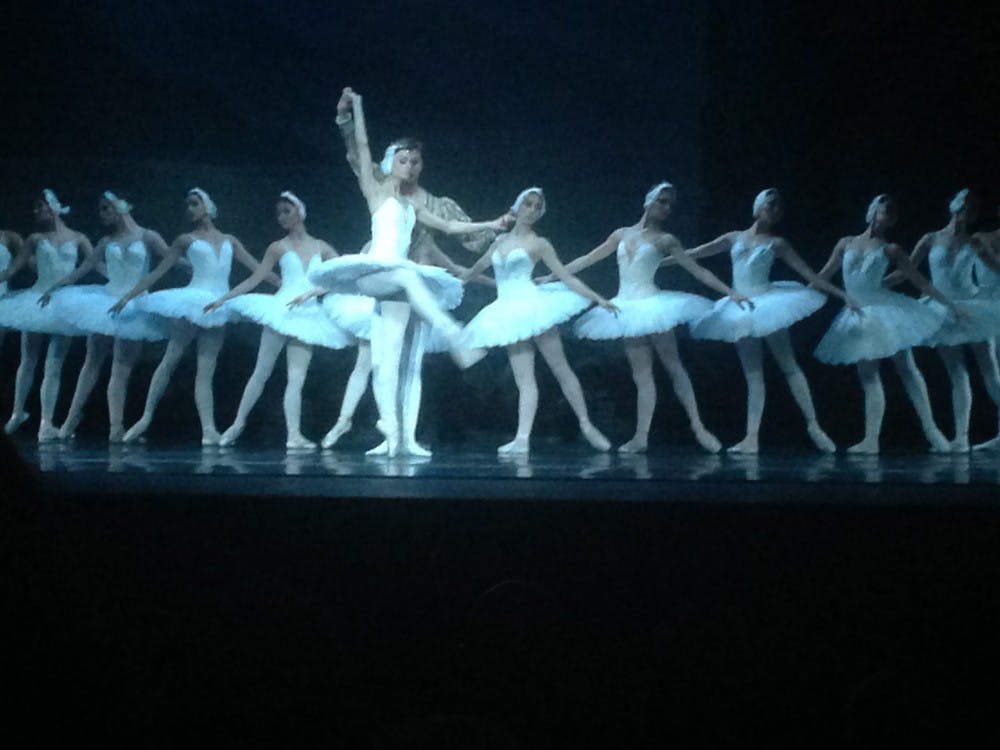Nearly 139 years after the first premiere of Swan Lake at the Bolshoi Theatre, the Moscow Festival Ballet performed its esteemed ballet at Elon University's McCrary Theatre Thursday night.
While Swan Lake consisted of four acts and lasted around two and half hours, it gripped the attention of its audience.
Marius Petipa and Lev Ivanov choreographed the variety of ballet pieces for Swan Lake. Bolshoi Ballet cavalier Sergei Radchenko, who is now the artistic director of the company, founded the Moscow Festival Ballet in 1989.
The premise of Swan Lake is that a young prince must choose a bride after being recognized as a man by his kingdom. Prince Siegfried is distraught over this pressure and runs to a nearby lake, where he spots beautiful swans walking through a forest.
These swans transform into women, and the Prince falls in love with the Swan Queen, Odette. All of the swans are under the sorcery of Rothbart. Rothbart then turns them back into swans when the sun comes up. Rothbart is the central antagonist in the play.
Several princesses are brought to the Prince at the castle for him to choose a bride, but he does not fall in love until he spots Odile, a woman disguised by Rothbart to look like Odette. The Prince chooses to marry her, breaking the swans free from their spell with his true love.
The Prince fights through a wicked storm that Rothbart concocts in order to find Odette once he realizes his mistake. He saves the swans, and the ballet ends with true love conquering all.
Alexander Daev played the role of Rothbart, and the dramatic stark contrast of makeup on his face provided a terrifying image that added to his evil character. Dmitry Sitkevich, whose facial expressions and strong physique served him well as a lead, played the enemy of Rothbart, Prince Siegfried. Sitkevich’s high leaps and ability to do countless fouettes (meaning "to whip" in French) livened the performance.
The main focus of the show, though, was Maria Sokolnikova, who performed Odette, the Swan Queen. Her flexible, arching back and emotional connection to the character of a swan captivated the audience.
The costumes for this cast appeared authentic to the medieval time period, and the makeup highlighted the variety of emotions and characters onstage. Special effects like heavy smoke during the forest scenes with the swans and the constant changing of colored lights to spotlight the dancers provided the audience a peek into what the actual performances might look like in professional ballet theaters.
The only issue that was seemingly obvious to those who sat close to the stage was the constant slipping of feet onstage, especially for the pointe dancers. There were a few moments that multiple dancers were talking under their breath about the lack of traction of the floor after they couldn’t finish their turns or partner with the men easily.
Swan Lake is just one of several ballets the Moscow Festival Ballet tours each year across the world. The Moscow Festival Ballet may not be the Bolshoi, but its professionalism appealed to the large number of Elon dance majors and minors on campus seeking inspiration for their future.


